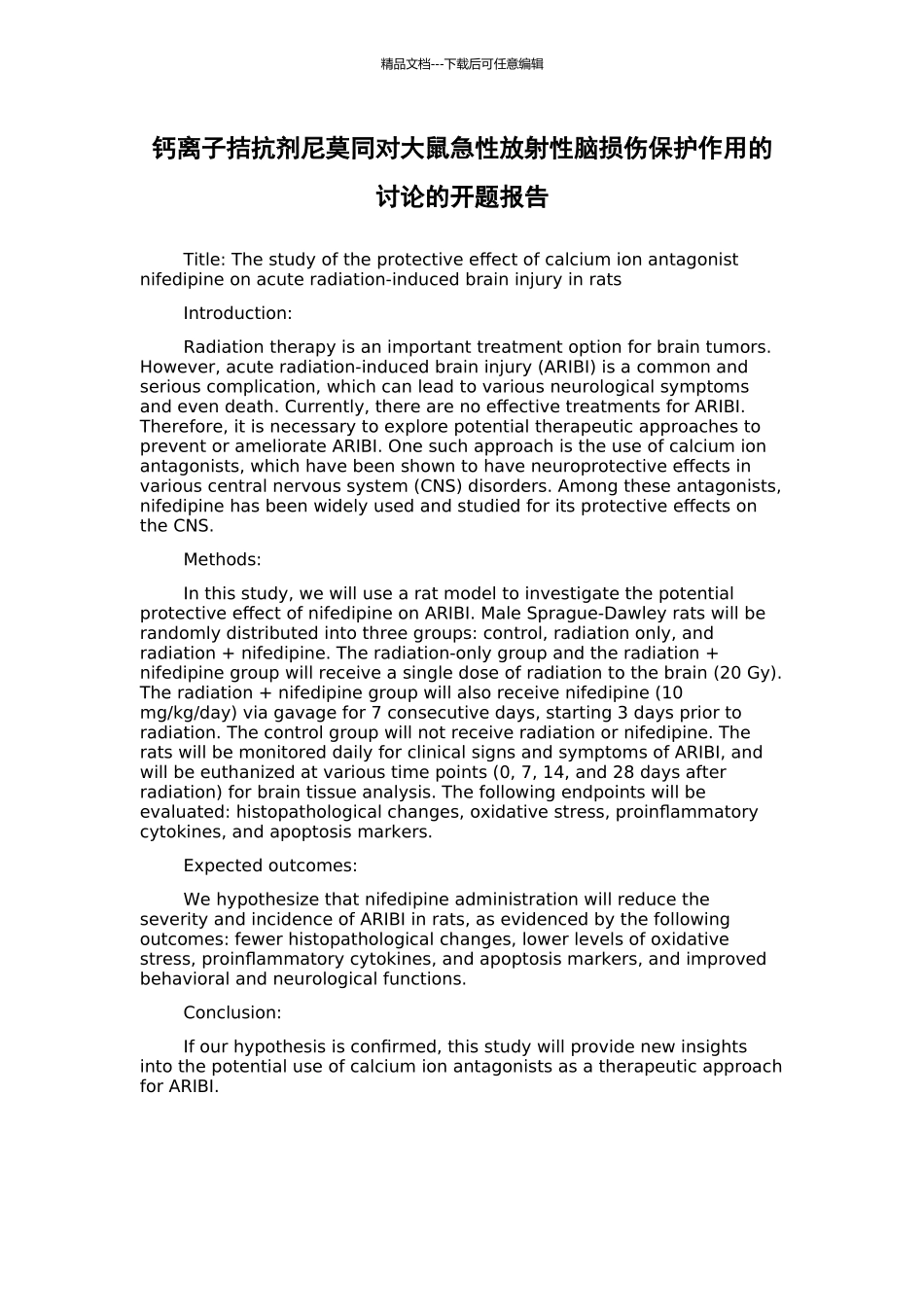精品文档---下载后可任意编辑钙离子拮抗剂尼莫同对大鼠急性放射性脑损伤保护作用的讨论的开题报告Title: The study of the protective effect of calcium ion antagonist nifedipine on acute radiation-induced brain injury in ratsIntroduction:Radiation therapy is an important treatment option for brain tumors. However, acute radiation-induced brain injury (ARIBI) is a common and serious complication, which can lead to various neurological symptoms and even death. Currently, there are no effective treatments for ARIBI. Therefore, it is necessary to explore potential therapeutic approaches to prevent or ameliorate ARIBI. One such approach is the use of calcium ion antagonists, which have been shown to have neuroprotective effects in various central nervous system (CNS) disorders. Among these antagonists, nifedipine has been widely used and studied for its protective effects on the CNS. Methods:In this study, we will use a rat model to investigate the potential protective effect of nifedipine on ARIBI. Male Sprague-Dawley rats will be randomly distributed into three groups: control, radiation only, and radiation + nifedipine. The radiation-only group and the radiation + nifedipine group will receive a single dose of radiation to the brain (20 Gy). The radiation + nifedipine group will also receive nifedipine (10 mg/kg/day) via gavage for 7 consecutive days, starting 3 days prior to radiation. The control group will not receive radiation or nifedipine. The rats will be monitored daily for clinical signs and symptoms of ARIBI, and will be euthanized at various time points (0, 7, 14, and 28 days after radiation) for brain tissue analysis. The following endpoints will be evaluated: histopathological changes, oxidative stress, proinflammatory cytokines, and apoptosis markers.Expected outcomes:We hypothesize that nifedipine administration will reduce the severity and incidence of ARIBI in rats, as evidenced by the following outcomes: fewer histopathological changes, lower levels of oxidative stress, proinflammatory cytokines, and apoptosis markers, and improved behavioral and neurological functions.Conclusion:If our hypothesis is confirmed, this study will provide new insights into the potential use of calcium ion antagonists as a therapeutic approach for ARIBI.
